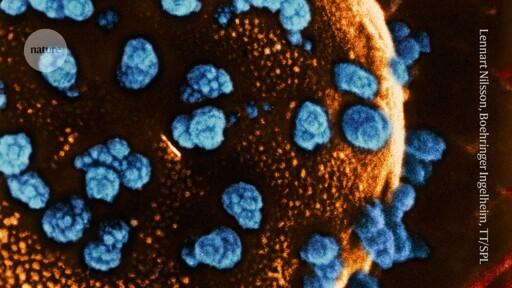A 25-year-old woman with type 1 diabetes started producing her own insulin less than three months after receiving a transplant of reprogrammed stem cells1. She is the first person with the disease to be treated using cells that were extracted from her own body.
“I can eat sugar now,” said the woman, who lives in Tianjing, on a call with Nature. It has been more than a year since the transplant, and, she says, “I enjoy eating everything — especially hotpot.” The woman asked to remain anonymous to protect her privacy.
James Shapiro, a transplant surgeon and researcher at the University of Alberta in Edmonton, Canada, says the results of the surgery are stunning. “They’ve completely reversed diabetes in the patient, who was requiring substantial amounts of insulin beforehand.”



This fails to answer the biggest question.
For most T1D is not about not producing insulin. That is a symptom. Not the desease.
Its a genetic condition where the immune system attacks insulin producing cells. Pancras transplants have existed since the 90s. In most cases the patients become t1d again the future.
As t1ds have already done this to there own insulin producing cells. How dose adding our own reprogrammed stem cells help long term?
While it may help long term. IE when we have a sullution to the autoimmune condition. It is at best a step towards a cure.
That should not be dismissed.
Every step puts us closer to an actual permanent cure.
Agreed. And when data like this is shared by honest consideration. It can help with moral.
But the tittle here is extremely false. And the lack of science in headlines can be dangerous.
I have been T1d for over 40 years. I was promised by doctors in the 1980s that e were close to a cure. I have seen friends die because of that hope. IE, thinking the cure is so close they don’t need to worry.
I had been a T1d for nearly 20 years when science discovered the autoimmune issue. And I realised. Not only are we not close to a cure. But we have absolutely no idea how to address the immune system attacking our own pancreas.
At the time. Sure, doctors honestly believed transplants might work. So those kids that failed to treat it like a lifetime condition. Sorry for the error. But the advice was at least based on the best knowledge of the time.
Issue is I still see doctors claiming we are a few years from a cure, more than 40 years later. When absolutely no positive research exists covering a cure for the immune issue. This has lead to a whole generation of T1ds like me and my brother who find articles like this insulting and dangerous. As we have seen, the harm false hope can cause.
Honestly, promise of better treatment is way more viable than promise of an unknown cure. When I was diagnosed, portable blood testing was impossible. Urine tests once a day was the best w could get. We had no fast insulin. So I had to inject to cover the whole da. And eat a little every 2 hours to prevent dying of hypoglycaemia. Honestly, not only were we unable to keep track and manage our level well. We had no idea what a non T1ds levels looked like over time.
Modern medicine has changed T1d treatment hugely in my lifetime. To the point where my life expectancy on diagnosis was about 45 years. And my health now. Means that really is not absurdly far off. The harm done in those first years of poor insulin and no blood testing out weighed much of the later good.
That is the story modern young diabetics need to be encouraged by. Newly diag T1ds now can expect to live as long as a non t1d if managed well. Teaching them that managing the T1d well now will lead to better easier management as the tech improves, and maybe in the future we will learn enough to actually address the immune issue. Will provide a better long term outcome to new T1ds today. Then getting hopes up for a cure just around the corner, dose. T1ds have a long history of negative humer and giving up the battle. Bad Science articles like this and worse still medicle professionals that fail to understand the actual; status of research. Maker that much worse.